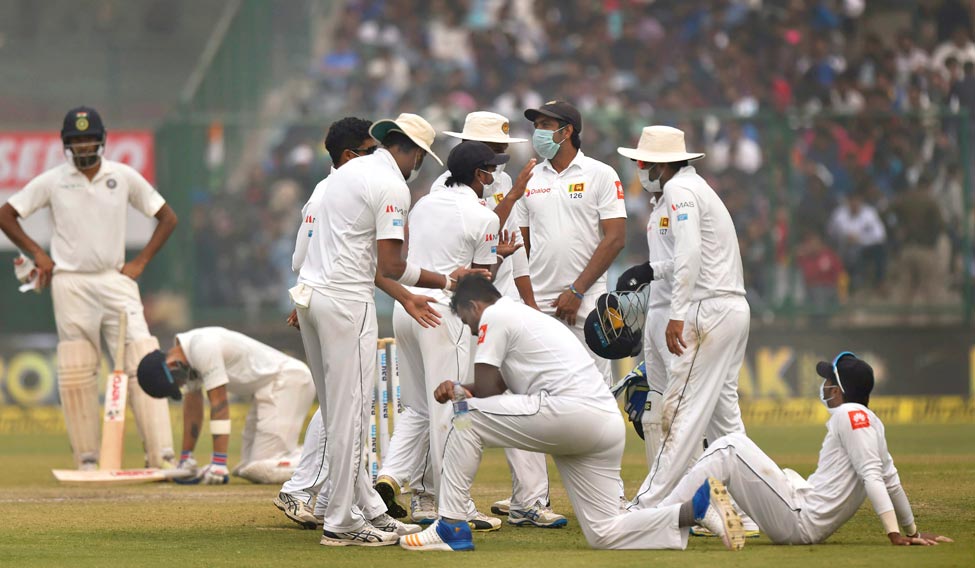Rising pollution levels in the National Capital Region is, without doubt, a matter of grave concern. The daily Air Quality Index figures splashed in bold on front pages of newspapers serve a grim reminder.
It is also a fact that smog is increasingly affecting Delhi's ability to host sporting competitions. While sympathies remain with the visiting Sri Lankan team as they struggled to cope with the infamous Delhi smog on Sunday afternoon during the third Test match, one cannot but also ask the question on whether there was any element of gamesmanship in the entire proceedings.
The interruptions broke the rhythm of Indian skipper Virat Kohli, who looked set for a bigger score, but he was out at 243 after the first break. A declaration, which looked unlikely at that point of time, was announced after play was stopped for the third time by Lankan players. The Lankan side touring in this series has been a demoralised unit―found wanting in its cricket for most part of it.
Last year, two Ranji Trophy matches were cancelled as heavy smog descended on Delhi. The teams found it difficult to breathe and visibility dipped to alarming levels. The Gujarat versus Bengal match at the Karnail Singh Stadium and the Tripura vs Hyderabad match at Feroz Shah Kotla ground were abandoned and cancelled respectively.
Javier Ceppi, tournament director of the local organising committee for the FIFA U-17 World Cup which took place in October, tweeted about the smog conditions. “You can't host sport events in Delhi from Diwali till end of Feb, at least. It is a fact. We had to accommodate our whole schedule to avoid it and others should also think about athletes (sic) health first #DelhiSmog ” read his tweet.
Nic Pothas, interim coach of the Lankan team, gave a graphic description of the struggles of the Lankan players both on and off the field. “We had players coming in at one point and vomiting. There were oxygen cylinders in the dressing room. It is not normal for players to suffer that way while playing the game.”
Reportedly, two Indian players in the dressing room too felt the effects of the smog.
On the interruptions made by the Sri Lankan players, Mohammed Shami said, “It wasn't as bad as they made it out to be. But we are also used to these levels of pollution, unlike them.”
THE WEEK has a somewhat different version of how things played out.
According to reliable sources ,who were witness to the goings-on at the time, oxygen cylinders were available in the ambulances for any emergency for the teams, but the medical team reportedly did not use them inside the dressing room. A few players got steam to clear up the congestion that they were experiencing.
ICC match referee David Boon had no intention of calling the match off. He reportedly told the Lankan players that play would continue, and if they wanted, they could take to the field wearing breathings masks. He also told them that despite this being a unique situation, he would ensure the entire 90 overs quota for the day was bowled. The match went on till 4.55 pm with 4.3 overs remaining.
The Sri Lankan team management had apparently requested medical aid to be put on standby before start of the third day's play and the medical team had to allay their concerns.
Meanwhile, all eyes are on the ICC match referee's report that will be filed after the match.






